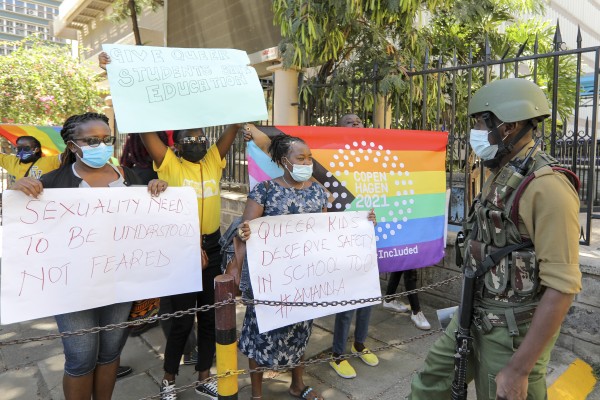Lydia Ngoolo normally covers human interest stories for the Kenya Star. But when the reporter wrote about a house that some neighbours believe was once used by Osama bin Laden and continues to serve as a haven for militants, she began receiving threats by telephone.
Ngoolo changed her phone number and went into hiding after the article under the headline “Police urged to investigate old deserted house” was published in the paper on April 28.
“I fear being attacked, I fear being killed,” Ngoolo told me in a telephone interview the other day. “When somebody threatens you and you don’t understand why, you have to be careful.”
There is no proof so far as to who threatened Ngoolo and – in a case of mistaken identity – one of her colleagues at the Star. Joseph Olweny, the newspaper’s regional news editor, confirmed that the calls “were extremely threatening”.
The Kenyan Correspondents Association, however, in a May 18 statement linked the calls to “some police officers, administration officials and a local member of parliament”.
“We are surprised that instead of the police investigating the allegations and fears by local residents as reported by the journalist, they have instead turned on the journalist, threatening and intimidating her,” Association Chairman Oloo Janak said in the statement. “We demand immediate investigations into the role of the police, the local administration officers and some of the local business people in what the local people fear is collusion in facilitating illegal immigrants into the country who pose a threat to the security of the country.”
Ngoolo’s report quotes residents in the town of Mwingi as saying they urged the police to investigate “a spooky house that is about a kilometre from Mwingi market”. The article goes on to say that the two-story home may have been used by bin Laden before the Aug. 8, 1998 attack on the American embassy in Nairobi. The United States has accused bin Laden of orchestrating the Nairobi bombing and another that same day on the U.S. mission in Tanzania.
Mwingi is located on the A3 highway that connects Nairobi to the Somali frontier and serves as a transit corridor for migrants. The road is also believed to be used by Somali al-Sabaab militants for transporting weapons and personnel. Al-Sabaab is linked to a number of violent attacks in Kenya and claimed responsibility for the deadly assault on the Westgate shopping complex in Nairobi on Sept. 21, 2013.
A month after her article on the alleged militant safe house was published, Ngoolo says she is still being cautious and files reports without going into the field. When she does go out, she never travels alone and plans to avoid too much public exposure for the time being. “I just want them to forget about me,” she said of those who threatened her.
Her editor says the police have vowed to get to the bottom of the threats and prosecute those who are responsible for menacing Ngoolo. “This is a very unusual case,” Olweny said when asked how often his journalists face threats for their work. “This is very peculiar.”


